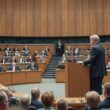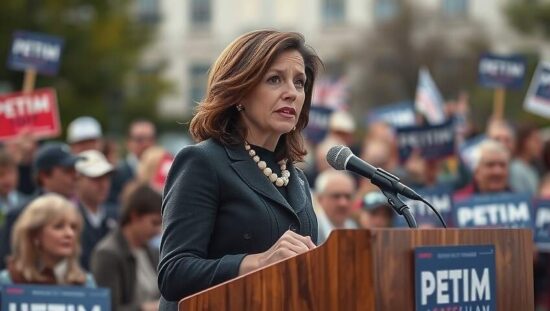A growing budgetary dispute is unfolding in Germany, with opposition parties demanding significant spending cuts as concerns mount over projected shortfalls in the 2026 federal budget. Lawmakers from the Christian Democratic Union (CDU) and Christian Social Union (CSU) are urging Finance Minister Lars Klingbeil to identify savings, specifically targeting programs related to renewable energy and social welfare.
CSU General Secretary Martin Huber has called for reductions in funding allocated to the promotion of heat pump technology, a key component of the government’s energy transition strategy. Critics point to the substantial financial commitment – approximately €15.3 billion earmarked for energy-efficient building programs in 2025 – and argue that previously established climate goals within the building sector haven’t been consistently met. The Federal Environment Agency estimates a gap of 110 million tonnes of CO2-equivalent emissions by 2030, potentially leading to substantial penalties through European Union mechanisms.
Beyond energy policies, CDU/CSU parliamentary group deputy leader Mathias Middelberg is advocating for increased incentives for recipients of citizen’s income (Bürgergeld), a basic income scheme, to enter the workforce. He argues that employment would not only reduce reliance on public funds but also contribute to the tax and social security systems. Middelberg highlighted particularly low employment rates among asylum seekers, specifically those from Syria and Afghanistan, with a significantly higher proportion receiving citizen’s income. He emphasized the potential for improved labor market integration within this demographic as a means of alleviating budgetary pressure.
The opposition parties are framing these demands as a preference for internal savings over tax increases, as the government seeks to address emerging financial challenges. The debate underscores ongoing tensions regarding resource allocation and priorities within the federal budget.





